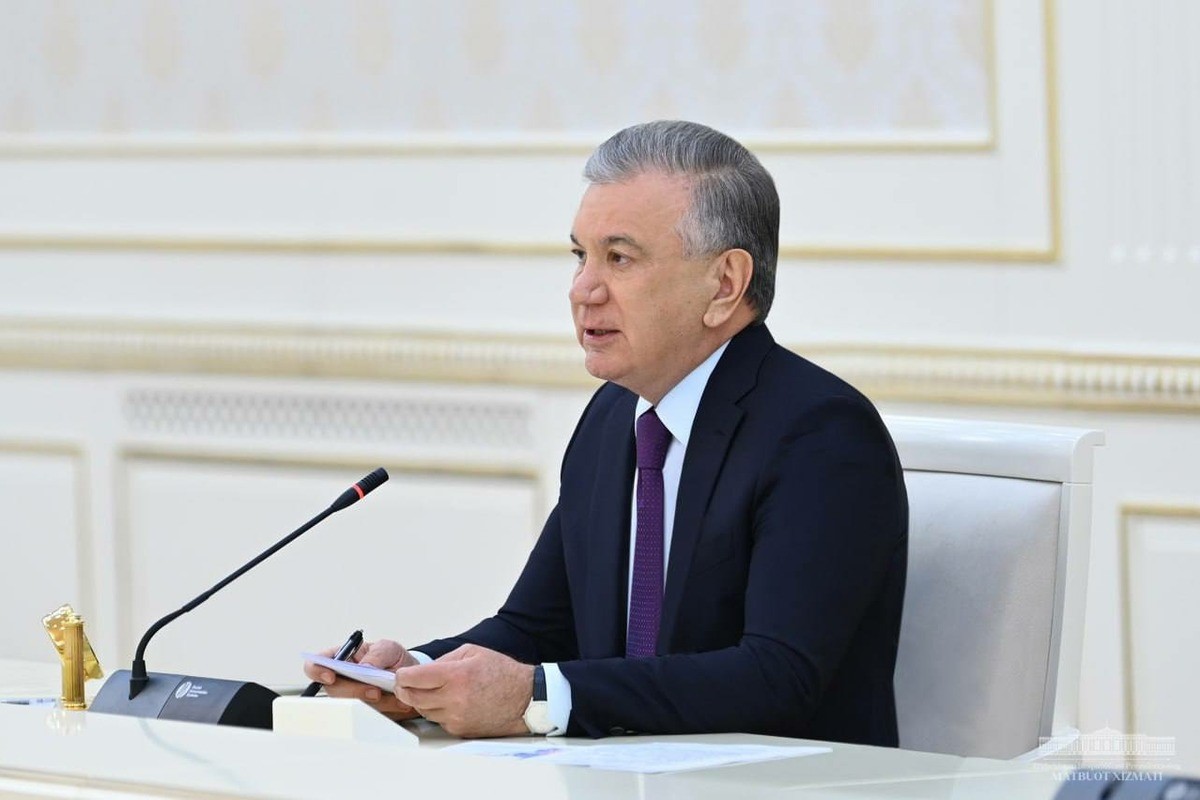Issues of increasing exports in agriculture were discussed
Under the chairmanship of President Shavkat Mirziyoyev, a video conference meeting was held on 18 March on increasing investment and exports in agriculture and the food industry.
Last year, our country produced 23 million tons of fruits and vegetables, and the food industry produced products worth 86 trillion soums.
According to estimates, there was the possibility of exporting products worth US$5 billion, but due to improper organization of work by ministers and khokims, as well as unresolved problems of exporters, this figure did not exceed US$2 billion.
The structure and geography of exports were analyzed at the meeting. In particular, more than ten new markets were opened over the past year, including Australia, New Zealand, Singapore, Colombia and Indonesia, bringing the total to 85. However, 80 percent of exports come from five countries and ten product types account for 60 percent of total exports of fruits and vegetables.
Every year, 700 billion soums are allocated to support the export of agricultural products, and 1 trillion soums to increase production. However, the results do not correspond to the effort expended. The potential of 1 million hectares of land released from grain crops, 508 thousand hectares of household plots and 260 thousand hectares of land distributed among the population are not fully used. Some areas do not export fruits and vegetables at all.
The head of our state expressed his readiness to consider creating any necessary conditions for increasing agricultural and food exports this year.
- Controlling inflation and ensuring currency stability are directly related to exports. If we do not expand the conditions for export along with an increase in production, the result will not meet expectations,” the head of state said.
The meeting was attended by representatives of exporting enterprises and logistics companies. The President held a dialogue with them, listened to their problems and initiatives.
The proposal was supported to transfer trading houses in Germany, Hungary, Poland, Spain, the USA and Kazakhstan to the management of entrepreneurs, as well as to open trading houses in major port cities such as Nagoya, Mersin, Rotterdam, Qingdao, Klaipeda and Doha.
Recently, the first private laboratory with international accreditation opened at the Agricultural Services Center in Yukorichirchik. This year, thanks to an investment of US$8 million, similar modern laboratories will be launched in Zangiata, Fergana and Samarkand.
A reference laboratory will be created in Tashkent to ensure that the work of private laboratories complies with international standards. US$12 million raised from the World Bank will be allocated for these purposes. In the future, internationally recognized reagents will be exempt from customs duties and will not require a mandatory environmental certificate.
Responsible persons have been instructed to ensure international accreditation of other laboratories, study the national requirements of foreign countries for the quality of fruits and vegetables and inform our exporters about this.
The need to revise the system of participation in international exhibitions was emphasized, and the rating of entrepreneurs will be taken as a basis. Entrepreneurs with high and average ratings will receive 100 percent financing for participation in exhibitions in advance, and those with low ratings will receive 50 percent compensation of expenses after providing supporting documents of participation.
One of the problems that many export companies face is the lack of working capital. Therefore, this year 1.5 trillion soums will be allocated from the Business Development Bank for these purposes. With these funds, the exporting company will be provided with a preferential loan of up to 50 percent of the contract amount with the farmer and the procurement warehouse. Loans will be issued at 18 percent per annum with a grace period of six months for a period of up to 1.5 years.
As you know, fruits and vegetables spoil and lose quality faster than industrial goods. For products that require optimal delivery temperatures, such as fresh fruits, juices, confectionery, preserves, jams, refrigerated containers will be delivered.
To reduce natural loss and spoilage of products, special attention must be paid to packaging. In this direction, it is important to organize a modern enterprise and attract experienced designers.
A wide range of fruits and vegetables are grown on household plots and crop lands. Many suppliers buy them in cash and prepare them for experts. From now on, they will work as self-employed persons and are exempt from all taxes, regardless of turnover.
The meeting also analyzed the possibilities of the food industry.
This year it is planned to produce food worth at least 100 trillion soums and export US$1 billion, and launch 528 projects worth US$833 million within the framework of regional programs. To finance these projects, US$310 million was distributed to banks. These measures will increase exports of prepared food products by US$200 million.
Based on the issues discussed, it was decided to create a commission for the export of fruits, vegetables and food products, headed by the Prime Minister.
A three-year program will also be developed, covering the entire cycle from cultivation to storage, packaging, processing and sale of products. Measures will be taken to support 2,362 enterprises exporting agricultural products and increase their number.
It was instructed to create a permanent platform for dialogue with exporters, where they will exchange information about available products in the regions, demand and prices in foreign markets.
Source of information: https://www.uzdaily.uz/en/post/87804



